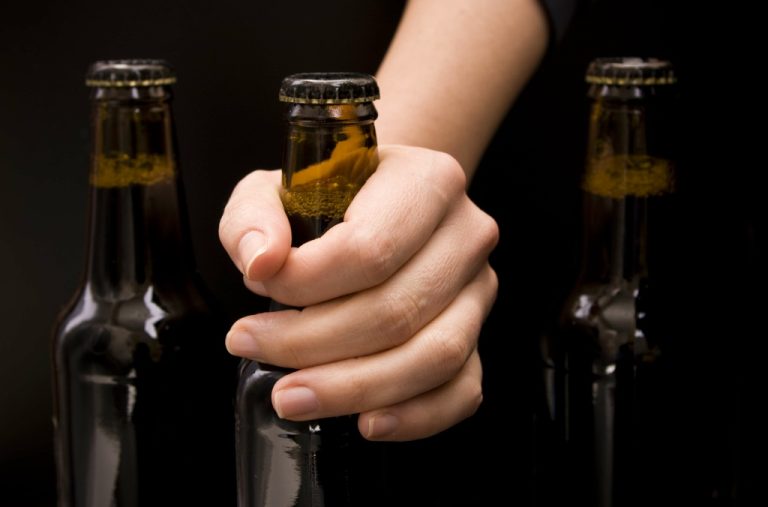Diagnosis requires the presence of at least five of these symptoms (APA 2000; APA 2013). Alcohol dependence is characterized by bouts of excessive drinking, and inability to control alcohol consumption despite the awareness of its negative consequences (APA 2013). AUD diagnosis requires repetitive alcohol‐related problems in at least two out of 11 areas of life as described by a set of criteria that includes ‘craving,’ which is defined as a strong, obsessive, and irresistible desire to consume alcohol (APA 2013). The second meta‐analysis investigated the efficacy of antidepressants in people with substance‐use disorder with and without depression (Torrens 2005). Among the selected trials, nine studies specifically investigated the efficacy of antidepressants in people with co‐occurring alcohol dependence and depression.

Alcohol and Mental Health
If you feel drowsy, dizzy, and less alert on Lexapro alone, you will likely not be able to tolerate the combined effects of alcohol. Get started with our free assessment, which will tell you in minutes if treatment could be a good fit. If yes, we’ll connect you right to a clinician who can prescribe medication and have it shipped https://claw.ru/a-rings/LordoftheRings/Index2.htm right to your door. But if depression is interfering with your daily life, make an appointment to see your doctor. Since Lexapro has a half-life of hours, a regular dose of Lexapro will leave your body after a little more than six days. These side effects often begin to subside after the first two weeks of taking Lexapro.

Antidepressants versus psychotherapy
It is important to follow the prescribed dosage and to consult with a healthcare professional if there are any concerns or questions about the medication. In individuals with depression, anxiety, or other mood disorders, there may be an imbalance of serotonin. Lexapro works by inhibiting the reuptake of serotonin, meaning it prevents the brain cells from reabsorbing https://www.feldsher.ru/dispetcher/podstantsii/?arrFilter_ff%5BNAME%5D=&arrFilter_pf%5Bcity%5D=&arrFilter_pf%5Breg%5D=&set_filter=Y serotonin. This leads to increased levels of serotonin in the synaptic gap between nerve cells, which can help improve mood and reduce anxiety. I began to research on the internet to find an answer and I found other people reporting cravings for alcohol on SSRI medication on many websites. Yet no one in the medical profession seemed to be taking any notice of it.
Charnoff 1967 published data only
Some individuals may start to notice improvements in their symptoms within a few weeks of starting the medication. However, it can take up to 4-6 weeks of regular use for https://www.ukamina.com/books/yantar.html the full therapeutic effect to be reached. It is important to continue taking Lexapro as prescribed and consult with your healthcare provider if you have any concerns.
Once you stop taking Lexapro, it’s safe to drink alcohol after the medication is no longer affecting your thoughts and behavior. This can help people regulate their emotions and improve overall symptoms of depression and anxiety. Lexapro and other SSRIs are used to treat the symptoms relating to these psychological disorders to give patients relief and help them feel more “normal” in their day-to-day lives. Doctors mainly prescribe Lexapro to treat major depressive disorder and anxiety disorder. She saw her therapist weekly and took her Lexapro, used to treat anxiety and depression.
Antidepressants had positive effects on certain relevant outcomes related to depression and alcohol use but not on other relevant outcomes. Moreover, most of these positive effects were no longer significant when studies with high risk of bias were excluded. Results were limited by the large number of studies showing high or unclear risk of bias and the low number of studies comparing one antidepressant to another or antidepressants to other medication. In people with co‐occurring depression and alcohol dependence, the risk of developing adverse effects appeared to be minimal, especially for the newer classes of antidepressants (such as selective serotonin reuptake inhibitors).
- Another limitation is the rather small number of patients, which may have been too low to detect a significant difference between the treatments.
- If you have any increase in your symptoms of depression and anxiety after drinking while taking Lexapro, that may be because of the negative effects of alcohol.
- It belongs to the class of selective serotonin reuptake inhibitors (SSRIs).
- For example, alcohol is a depressant, and although it may offer short-term relief from depressive symptoms, it might make depression worse over time.
- Lexapro should be taken with or without food, as directed by your healthcare provider.
Data and analyses
However, the choice between Lexapro and other antidepressants depends on factors such as individual response, tolerability, and potential drug interactions. Pediatric use of Lexapro requires close monitoring by a healthcare professional. The safety and effectiveness of Lexapro in children and adolescents have been studied, but there may be an increased risk of certain side effects in this population. Lexapro is not approved for use in children under the age of 18 for the treatment of depression. However, it may be prescribed for the treatment of generalized anxiety disorder in adolescents aged 12-17.
- SSRIs are a very commonly prescribed medication for the treatment of depression and anxiety.
- Speak with your healthcare provider about your treatment options and how to taper off the medication to lessen side effects.
- In terms of safety issues, the rate of people withdrawing from treatment due to side effects (undesirable effects such as dry mouth) may not differ between antidepressants and placebo.
- Lexapro works by increasing the levels of serotonin, a neurotransmitter, in the brain, which helps improve mood and alleviate anxiety.
- It is essential to note that individual responses to medications can vary, and not everyone will experience weight gain while taking Lexapro.
- Antidepressants were compared to placebo (22 studies), psychotherapy (two studies), other medications (four studies), or other antidepressants (five studies).
Salloum 2011 published data only
- Blinding of participants and personnel (avoidance of performance bias) was judged to interfere with both subjective and objective outcomes pertaining to the behaviour of participants (such as retention in treatment) and was addressed by a single entry for each study.
- People on these drugs are vulnerable anyway and it is worrying to think how many could be drinking to excess across the country because of a craving for alcohol caused by treatment.
- We did not find any unpublished studies despite a significant effort in contacting all the first authors of the included studies and the search of conference proceedings.
- A fixed-dose trial has demonstrated the effectiveness of both 10 mg and 20 mg of Lexapro.
There were no differences in final score between sertraline and placebo (3 studies; 147 participants; analysis not shown) (Moak 2003; Pettinati 2001a; Roy 1998). We also performed subgroup analysis for studies with low and unclear risk of bias. These antidepressants may have been administered alone or in combination with other medications for the treatment of alcohol dependence or with any psychosocial intervention. In terms of safety issues, the rate of people withdrawing from treatment due to side effects (undesirable effects such as dry mouth) may not differ between antidepressants and placebo. When taking Lexapro, drinking alcohol may contribute to a worsening of mental health, which can be very counterintuitive when you are taking a medication that’s meant to improve your mental health.

